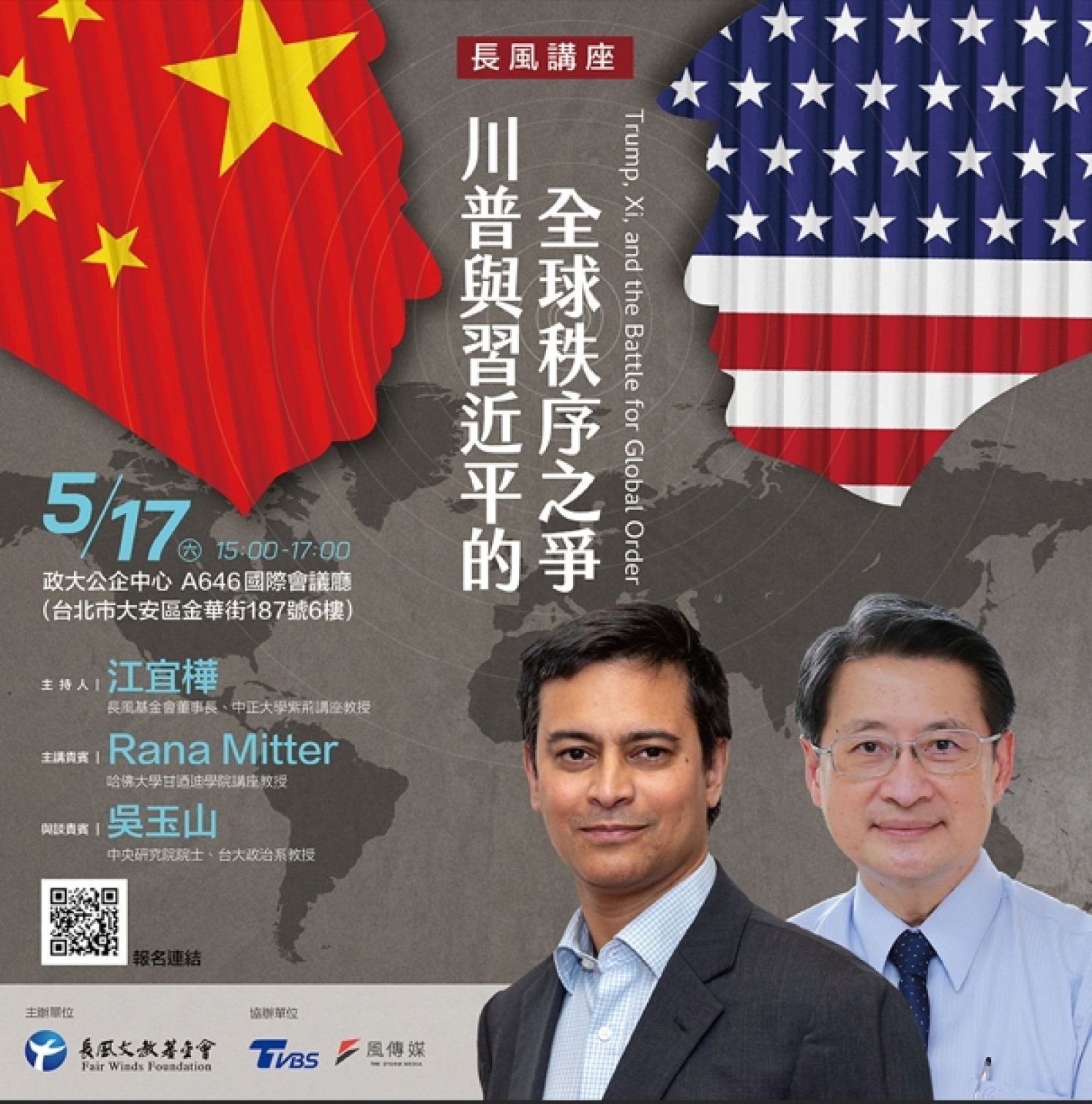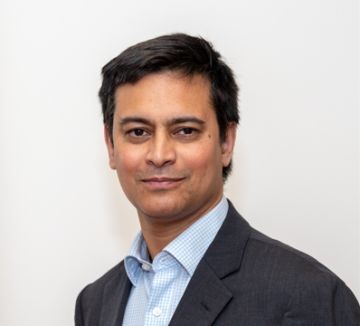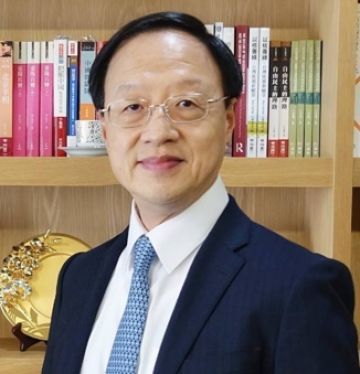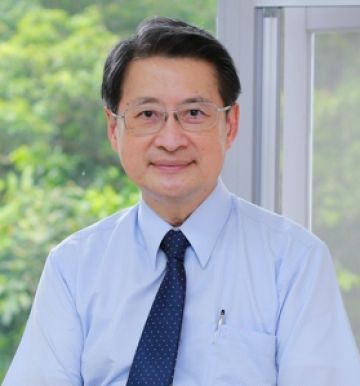
2025 Trump, Xi, and the Battle for Global Order
In 2025, President Donald Trump’s return to the White House marks the beginning of the “Trump 2.0 era.” His comeback has triggered significant controversy within the United States due to numerous domestic policy moves. Internationally, his revival of the “America First” doctrine and withdrawal from the Paris Climate Agreement have likewise fueled global unrest. Most notably, in U.S.-China relations, policies such as high tariffs and the export ban on tech products—which border on decoupling—have raised concerns about whether fierce confrontation between the world’s two major powers might lead to a breakdown in global stability.
In this time of turbulence, the Fair Winds Foundation is honored to host a special lecture by Professor Rana Mitter from the Harvard Kennedy School, with a dialogue led by Academician Wu Yu-shan from Academia Sinica. Professor Mitter argues that a new world order is taking shape, with the U.S. and China at its core. Over the past 80 years, the liberal international system—built on free trade, shared values, and collective security—is undergoing rapid transformation. Will the U.S. and China clash in the next 20 years? How will global issues like climate change evolve? Will ideology or technology shape the future? And how will historical experience influence what lies ahead for global governance? Professor Mitter will offer an in-depth analysis of these urgent questions. All who are interested in international affairs are welcome to attend.
Time: Saturday, May 17, 3:00–5:00 PM
Venue: International Conference Room A646, Center for Public and Business Administration Education, National Chengchi University (6F, No. 187 Jin Hua Street, Da’an District, Taipei City 106)
Moderator: Jiang Yi-huah (Chairman, Fair Winds Foundation; Bauhinia Chair Professor, National Chung Cheng University)
Keynote Speaker: Rana Mitter (ST Lee Chair in US-Asia Relations, Harvard Kennedy School)
Discussant: Wu Yu-shan (Academician, Academia Sinica; Professor of Political Science, National Taiwan University)
Organizers: Fair Winds Foundation
Co-sponsors: TVBS Television, The Storm Media
活動時間
2025 / 05 / 17 ( 六 ) 15:00
2025 / 05 / 17 ( 六 ) 17:00
與會來賓

Rana Mitter is ST Lee Chair in US-Asia Relations at the Harvard Kennedy School. He is the author of several books, including Forgotten Ally: China’s World War II (2013) which won the 2014 RUSI/Duke of Westminster’s Medal for Military Literature, and was named a Book of the Year in the Financial Times and Economist. His latest book is China’s Good War: How World War II is Shaping a New Nationalism (Harvard, 2020). His writing on contemporary China has appeared recently in Foreign Affairs, the Harvard Business Review, The Spectator, The Critic, and The Guardian. He has commented regularly on China in media and forums around the world, including at the World Economic Forum at Davos. His recent documentary on contemporary Chinese politics "Meanwhile in Beijing" is available on BBC Sounds. He is co-author, with Sophia Gaston, of the report “Conceptualizing a UK-China Engagement Strategy” (British Foreign Policy Group, 2020). He won the 2020 Medlicott Medal for Service to History, awarded by the UK Historical Association. He previously taught at Oxford and is a Fellow of the British Academy.

Professor Jiang Yi-huah holds a bachelor’s and master’s degree in Political Science from National Taiwan University and a Ph.D. in Political Science from Yale University. Born in Keelung, Taiwan, he has served as Associate Research Fellow at Academia Sinica’s Institute of Humanities and Social Sciences; Associate Professor, Professor, and Distinguished Professor in the Department of Political Science at NTU; and Professor of Public Policy at City University of Hong Kong. Between 2008 and 2014, he held various senior government positions, including Minister of the Research, Development, and Evaluation Commission, Minister of the Interior, vice premier, and premier of the Republic of China (Taiwan).
Professor Jiang’s research focuses on political philosophy, liberalism, democratic theory, national identity, and Taiwan’s political development. Among his major publications are Liberalism, Nationalism, and National Identity (Yang-Chih, 1998), Essays on Liberalism and Democracy (Linking Books, 2000), and Nationalism and Democratic Politics (NTU Press, 2003). He has received several accolades, including the Distinguished Teaching Award from NTU (2001) and the Outstanding Research Award from Taiwan’s National Science Council (2002).

Academician at Academia Sinica, Distinguished Research Fellow and founding Director of the Institute of Political Science at Academia Sinica, and jointly appointed Professor in the Department of Political Science at National Taiwan University. Professor Wu also holds honorary and endowed titles as the inaugural Lo Chia-luen Chair Professor and K.T. Li Chair Professor at National Central University, Honorary Chair Professor at Sun Yat-sen University, Chair Professor at National Chengchi University, and Chair Professor at National Tsing Hua University’s Taiwan Studies Program (TSE).
He previously served as Director of the Preparatory Office and founding Director of the Institute of Political Science at Academia Sinica, Convener of the Political Science Division at the National Science Council, and President of the Taipei Chinese Political Science Association. His research focuses include political and economic transitions in socialist states, democratization and constitutional design, cross-strait relations, and theories of international relations. More recently, he has spearheaded.